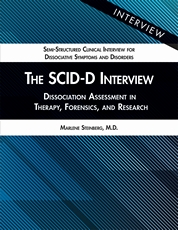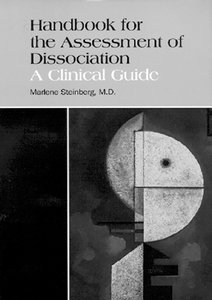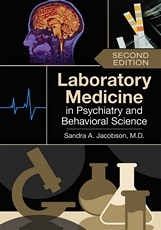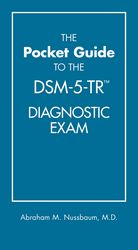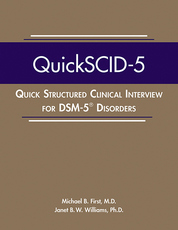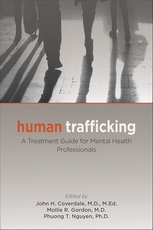The SCID-D Interview
Dissociation Assessment in Therapy, Forensics, and Research
View Pricing
Description
Systematic assessment of dissociation is essential for accurate diagnosis and effective treatment of trauma survivors. The SCID-D is an interactive, semi-structured interview for assessing dissociative symptoms and disorders in adults and adolescents based on Dr. Steinberg's innovative Five Component Model of Dissociation Assessment (amnesia, depersonalization, derealization, identity confusion, and identity alteration). Over 30 years of worldwide research and clinical use have confirmed the reliability and validity of the SCID-D interview, and its universality across cultures. The interview has demonstrated a powerful ability to distinguish people with dissociative symptoms and disorders from those with other conditions, and it is widely regarded as the gold standard in the field. This edition of the SCID-D includes all the psychometrically validated interview questions of previous editions, preserving its excellent psychometric properties.
The SCID-D is a valuable resource for clinicians and researchers assessing individuals suffering from complex posttraumatic and dissociative disorders. In the hands of a nonjudgmental empathic interviewer, the SCID-D is more than just a diagnostic tool; it can also accelerate the therapeutic alliance, promote client insight, and provide a roadmap for healing.
The SCID-D's evaluation method is independent of DSM or ICD nosology, though its results can be mapped into their diagnostic criteria. Administering and scoring the SCID-D interview requires familiarity with the Interviewer's Guide to the SCID-D.
Contents
- Acknowledgments
- Key Points About the SCID-D
- Preface to the 2023 Edition
- Part I: Psychiatric and Medical History
- History Questions
- Part II: The Five Components of Dissociation Assessment
- Amnesia: Past and Current Symptoms
- Depersonalization: Past and Current Symptoms
- Derealization: Past and Current Symptoms
- Identity Confusion: Past and Current Symptoms
- Identity Alteration: Past and Current Symptoms
- Part III: Further Exploration of Identity Confusion & Alteration
- Associated Features of Identity Confusion and Identity Alteration
- Follow-Up Sections: Identity Confusion and Alteration
- DSM-5-TR Specific: Optional History Questions Relevant to Other Specified Dissociative Disorder (OSDD), Example 2
- Part IV: Post-Interview Ratings
- Nonverbal/Observable Cues
- Appendices
- Appendix 1: SCID-D Severity Rating Definitions
- Appendix 2: Typical SCID-D Symptom Profiles for the Dissociative Disorders
- Appendix 3A: ICD-11 Diagnostic Criteria for the Dissociative Disorders
- Appendix 3B: DSM-5-TR Diagnostic Criteria for the Dissociative Disorders
- Appendix 4A: Summary Scoresheet (with ICD-11 diagnoses
- Appendix 4B: Summary Scoresheet (with DSM-5-TR diagnoses)
- Appendix 4C: Charting The Client's SCID-D Profile
Companion Products
Related Products
Carousel Control - items will scroll by tabbing through them, otherwise arrows can be used to scroll one item at a time
